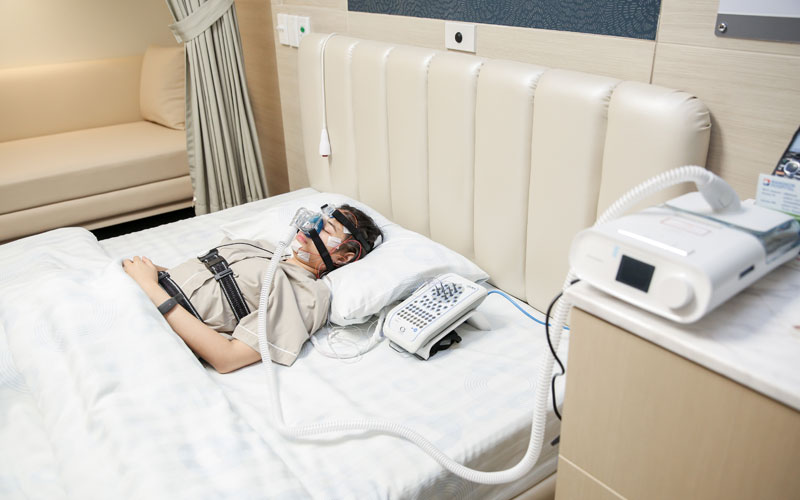
Continuous Positive Airway Pressure
CPAP
If one has sleep apnea, their airway closes and the brain must awaken the sleeper in order to resume breathing. The frequent sleep interruptions result in poor overall sleep health and can affect other areas of your health.
A CPAP machine consists of a mask, hose and a small machine. The mask covers either your nose only or both your nose and mouth. The machine delivers steady air pressure into the airway to prevent the collapse of the airway, which causes the sleep apnea. This air pressure results in a better night’s sleep for both the CPAP wearer and their partner.
Research studies have shown CPAP is the preferred treatment for obstructive sleep apnea. Documented research studies have shown:
- Reduced daytime sleepiness which can help improve focus, concentration
- Lower blood pressure during both the daytime and nighttime.
- People with coronary artery disease who use CPAP for sleep apnea are less likely to have heart problems such as heart failure.
- May help decrease the risk of Diabetes, Stroke, Arrhythmias, Mood Disorders
CPAP Usage
Using a CPAP machine does take a period of adjustment. Just like wearing glasses or a hearing aid for the first time, the patient needs to get accustomed to the device. Follow up visits with sleep specialist Dr. Luis A de Jesus Vargas are part of the treatment plan using CPAP.
It’s important to continue using your CPAP machine. Missing just one night with your CPAP machine can cause excessive daytime sleepiness the next day. To enjoy the health benefits above it is important to use your CPAP nightly.
Looking for CPAP supplies or need follow up care? Contact Sleep Disorders Diagnosis Center